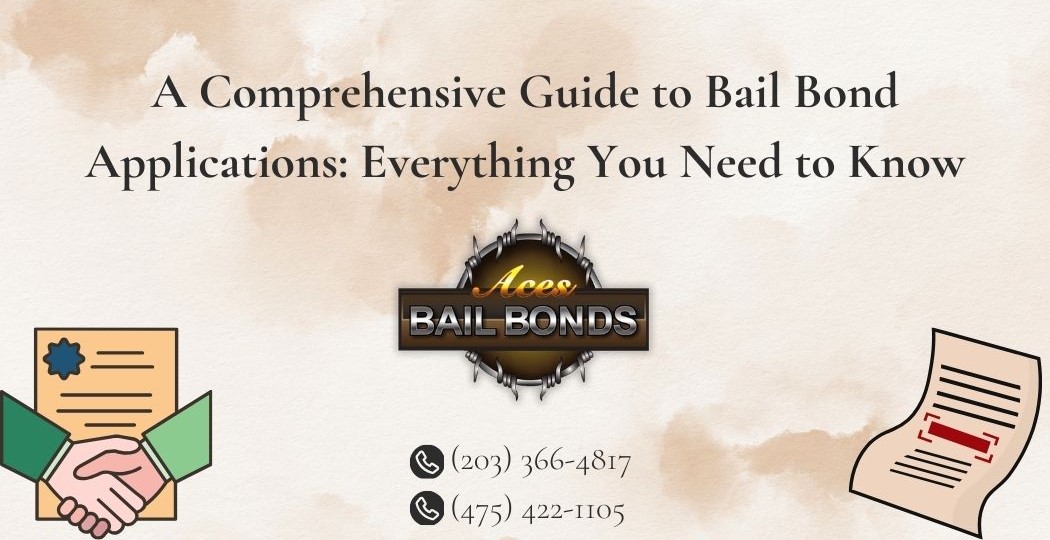A Comprehensive Guide to Bail Bond Applications in Connecticut
When someone is arrested, securing release from custody becomes the first priority. Courts often set bail, which serves as a financial guarantee that the defendant will return for all required hearings. For many families, the bail amount is too high to pay in full. That’s where Connecticut bail bonds come in. Understanding the bail bond application process is essential for defendants and their loved ones who need fast, reliable release while awaiting trial.
What Is a Bail Bond?
A bail bond is a financial agreement between the court, the defendant, and a licensed bail bondsman. Instead of paying the full bail amount, the defendant pays a bail bond company a non-refundable fee—typically 10% of the total bail. The bail bondsman then guarantees the defendant’s court appearances.
In some cases, collateral such as property, vehicles, or other assets may also be required to secure the bond.
How the Bail Bond Application Process Works
The bail bond application process involves several key steps:
1. Contacting a Bail Bondsman
The first step is reaching out to a licensed Connecticut bail bond agent. Choosing a reputable bondsman ensures a smooth and professional process.
2. Providing Information
The defendant or co-signer will need to provide details, including:
-
Full legal name and date of birth
-
Charges and bail amount set by the court
-
Employment and contact information
-
References and co-signer details (if applicable)
3. Completing the Bail Bond Application
The bondsman provides an application form that must be filled out with accurate personal and financial information. Honesty here is critical—false information can delay or deny release.
4. Paying the Bail Bond Fee
The standard Connecticut bail bond fee is 10% of the bail amount. This fee is non-refundable, even if the case is dismissed or charges are dropped. Some bail bond agencies may also offer payment plans.
5. Signing the Bail Bond Agreement
The agreement outlines responsibilities such as attending all court hearings and complying with any release conditions. Failure to follow these terms can result in bond forfeiture and re-arrest.
6. Posting Collateral (If Required)
For higher-risk cases or larger bail amounts, the bondsman may require collateral. If the defendant complies with all court obligations, collateral is returned once the case ends.
After these steps are complete, the bail bondsman files the bond with the court, and the defendant is released from jail.
Requirements for Bail Bond Applications
To qualify for a bail bond in Connecticut, defendants must:
-
Provide valid identification (driver’s license, state ID, or passport).
-
Share accurate contact details for themselves and co-signers.
-
Disclose employment and financial information.
-
Agree to the terms of the bail bond contract.
-
Provide collateral if required.
Key Considerations Before Applying
-
Financial Obligations: Remember that the bail bond fee is non-refundable. Discuss payment options with your bondsman if needed.
-
Collateral Risks: Be prepared to use property or assets if collateral is required.
-
Court Compliance: Missing a court date can lead to forfeiture of the bond and additional criminal charges.
Common Questions About Bail Bond Applications
How long does the process take?
Usually just a few hours—sometimes same-day release is possible.
What if I can’t afford the fee?
Many agencies offer payment plans or financing.
Do I always need collateral?
Not always. Collateral is typically required for higher bail amounts or if the bondsman views the case as high risk.
What happens if the defendant misses court?
The court can revoke the bond, issue a bench warrant, and seize collateral. The co-signer may also be held financially responsible.
Why Work With a Professional Bail Bondsman?
A Connecticut bail bond agency does more than just post bail. Experienced agents:
-
Guide families through the court process.
-
Offer flexible payment options.
-
Ensure defendants understand their responsibilities.
-
Provide 24/7 availability for emergencies.
Conclusion
The bail bond application process is designed to help defendants secure release quickly while ensuring accountability to the court. By working with a licensed bail bondsman in Connecticut, families gain financial relief, legal guidance, and peace of mind during stressful times.
If you or a loved one needs immediate help, contact Aces Bail Bonds at (203) 366-4817. We’re available 24/7 to provide fast, professional, and compassionate bail bond services across Connecticut.

